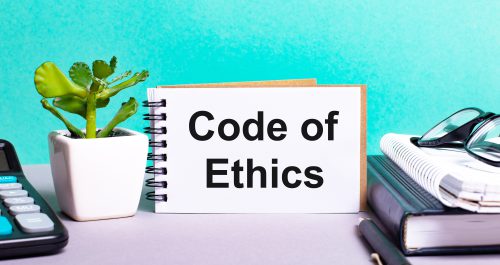The new version of the Code of Ethics of the Italian association of pharmaceutical companies: Key developments
 The Italian association of pharmaceutical companies (“Farmindustria”) released the new version of its Code of Ethics on January 19, 2022.
The Italian association of pharmaceutical companies (“Farmindustria”) released the new version of its Code of Ethics on January 19, 2022.
Some of the main changes concern i) hybrid events (art. 3.7 bis); ii) activities that pharmaceutical companies are allowed to carry out for non-prescribing HCPs (art. 3.25); iii) information provided to the public (art. 3.26); iv) interactions other than drug promotion (art. 3.28); and v) Patient Support Programs (article 4.7).
i. Hybrid events
Hybrid events, that is, events expected to involve both in-person and web-based participation, are governed by the following principles:
- The existing provisions concerning hosting, venues, duration, and so forth apply to in-person participation;
- Article 3.18 governs participation via web. This applies to both speakers and attendees and is valid for both CME and non-CME events.
ii. Initiatives for non-prescribing HCPs
Pursuant to the new article 3.25, pharmaceutical companies are permitted to carry out training and informational activities without any promotional purpose for non-prescribing HCPs.
Pharmaceutical companies may invite non-prescribing HCPs to conferences that do not relate to drugs that the companies manufacture or market. Any hospitality offered may not exceed the thresholds provided by Presidential Decree 62/2013, amounting to 150 euros per year, and must be offered in compliance with the regulations of the entity employing the non-prescribing HCP.
iii. Information to the public
Article 3.26 gives pharmaceutical companies the opportunity to provide information to the public on products and pathologies in their treatment areas.
Information to the public must comply with the following requirements: i) it shall be offered by personnel not in sales or marketing; ii) it must not be of a commercial nature and must be taken solely from a package leaflet, an institutional website, or a register managed by a public institution. It is forbidden, in any case, to provide therapeutic consultations or treatment recommendations.
This provision reaffirms the legality of including on company websites information such as a brand name and a full and exact copy of a package leaflet.
iv. Interactions other than drug promotion
Article 3.28 of the new Farmindustria code of ethics acknowledges that pharmaceutical companies adapt their organizational structures and processes in response to changing contexts and to meet the information needs of various stakeholders (such as institutions, HCPs, non-HCPs, and healthcare organizations), including by arranging various interactions that do not fall under the scope of drug promotion. Therefore, pharmaceutical companies are allowed to engage in nonpromotional interactions with the various stakeholders.
Article 3.28 governs the following functions:
- Access and institutional affairs: The use of materials with pharmaco-economic content (or related to the value of the product, or its economic advantage within the health system), as well as materials concerning health policies, pathologies, and patient plans, is allowed, provided those items are different from items used for promotional activities and do not include promotional content.
- Account management: Activities may be carried out to ensure the application of commercial policies via interactions with public or private parties involved in drug procurement processes. The use of a price list is permitted as long as it does not include promotional content.
- Scientific exchange: Pharmaceutical companies’ medical staff are allowed to perform activities targeted to HCPs that are aimed at the mutual sharing of data and nonpromotional information on issues related to healthcare and its dynamics.
Specifically, proactive sharing of independent data and insights related to clinical practice (e.g., information published on institutional websites or registers managed by public institutions, independent publications , and nonpromotional conference papers), as well as nonpromotional information concerning the company pipeline or activities involved in access of new products, is allowed. Other information on company products may be provided to HCPs only as a response to a specific unsolicited request. Companies shall adopt tools to ensure requests are traceable.
v. Patient Support Programs (“PSP”)
Article 4.7 defines a PSP as an initiative for the purpose of a pharmaceutical company making available additional services that do not replace those provided by the National Health Service, to the direct benefit of a patient undergoing treatment with a specific drug already authorized for marketing.
The PSP and the material used must not be promotional tools, but rather must serve only to communicate information necessary for the appropriate use of the drug. The duration of the services offered by the PSP should be predetermined and consistent with the identified need and the relevant benefit sought for the patient.
The processing of personal data of patients involved in PSPs has changed significantly. The pharmaceutical company must not be involved in the processing of such data. Companies may only see aggregate data gathered for statistical purposes based on the use of the service.
